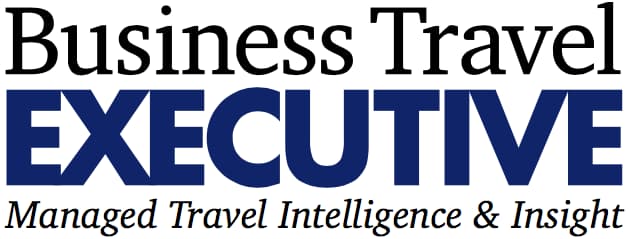The needs of the industry have drastically changed, and employees want their companies to evolve with them as they more closely align the way they travel for work with the way they travel for leisure. Where there once was the simple business trip model (book airfare or rental car and hotel, car service to airport, etc.), corporate travel programs are now facing much more diverse demands from their traveling teams. This means new players in the on-demand economy have opportunities to strengthen existing travel options and introduce new ones.
More and more the notion of a business travel experience that is differentiated from a leisure travel experience is disappearing, according to Daniel Finkel, strategy and business development director at Egencia, the business travel arm of OTA Expedia.
“Travel is travel and travelers are finding what is helpful, enjoyable and easy for their personal trip will very likely offer the same benefits for their work trip,” Finkel says. “From ground transportation, to meals, to airport lounge access, on-demand products and services are perfectly designed for the traveler. The difficulty is consolidating all these various experiences in one place and ensuring corporations understand how to diligently account for these services in areas like expense and risk management.”

Thus the challenge for corporate travel programs is how to fold these innovative options into a travel policy, while maintaining Duty of Care and managing the back-end expense reporting and data. In response, major sharing economy players are making serious inroads in the managed travel space, and as a result travel policies are quickly opening up to adapt.
Most of these sharing economy companies are available either globally or regionally, so no matter where travelers are, they are likely already familiar with the process and the service. That’s appealing to leisure travelers, to be sure, but many of those same travelers are also on the road for business. So these on-demand products and services are showing up on more and more expense reports.
The Modern Business Traveler
Over the past two years, the Association of Corporate Travel Executives and American Express Global Business Travel together have conducted research to understand the identity of the modern business traveler, including how on-demand economy options resonate with them. The research reveals that the modern business traveler lives in an age of powerful, cost-effective mobile technology, personalization and consumerization of tools and services.
“This trend of consumerization means that expectations for professional and personal experiences are leveling, with digital technology as the common ground on which intuitive and end-to-end experiences are built,” says Rodolfo Elizondo, vice president of global business consulting at American Express Global Business Travel. “The on-demand economy is a perfect example of something that business travelers utilize in their day-to-day lives with ease and want to incorporate into their trips.”
“To address these trends and the core needs of travel managers, GBT has made significant progress toward developing a multichannel core platform to power traveler-centric solutions, balanced with services that address the fundamental needs of a managed business travel program,” Elizondo says. “All built to evolve in an environment with increased fragmentation with NDC and direct connects.”
Meanwhile Egencia has recently introduced Egencia Advantage to provide its corporate clients and travelers with a host of traveler-centric products. “Efficiency is key in all facets of business and travel is no exception,” Finkel says.
A Rising Tide
Using ridesharing as a travel solution for corporate travel provides passengers with more time to stay focused on making phone calls, answering e-mails, and addressing pressing business matters while on the road.
Amit Patel, director of partnerships at Lyft Business, notes now more than ever, organizations are understanding the value that ride-sharing can bring to their business as a convenient, affordable, and comfortable transportation solution.
“Over the last three years, we have worked with top organizations in the travel space to learn about their specific needs and challenges,” he says. “At the end of the day, our goal is to empower organizations to provide rides to the people they care about – from employees and customers, to patients and students.”
For example, in addition to collaborating with top businesses across the country to move their employees for corporate travel, Lyft Business has also partnered with the largest, most innovative healthcare organizations in the country to create better transportation options for patients, thereby increasing appointment attendance rates and ultimately improving patient quality of life.
The demand for Lyft as a corporate travel solution increased by 3 percentage points, to 11 percent in third quarter 2017, according to expense management provider Certify. The company has already partnered with leading travel systems and platforms in use today, including Carlson Wagonlit Travel, Concur, Expensify and Deem.
“An integration with Lyft saves time both for the travel manager as well as the corporate traveler by pre-scheduling a ride and conveniently seeing the car arrive in real-time,” Patel explains. “Business travel managers are able to see real-time reporting on ride data and costs, and travelers can get easily reimbursed through our various expense integrations.”
Guiding Their Stay
Lodging is another market segment where on-demand technology has created entirely new concepts for both business and leisure travel. “Business travel is becoming less about being a road warrior and more about mixing business with leisure. People are combining business trips with weekend stays and finding ways to create unique experiences even if they are on the road for work,” according to David Holyoke, head of Airbnb for Work.
Business travelers want more choice and more control over where they book and want to be able to customize their trip as much as possible, Holyoke says, whether that’s choosing a home with a fully stocked kitchen for their foodie tendencies or picking a studio in the arts district of a city they’re visiting.
“As people travel for work, they are looking for the same flexibility and convenience that they experience in their personal lives, which is why we hear from a lot of travelers and employers about helping them make it easier to incorporate Airbnb into their corporate travel policies,” he says.
Airbnb for Work has partnerships with American Express GBT, BCD, and Carlson Wagonlit, and is currently working with Concur to incorporate Airbnb listings into their search and booking tool.
Last year, the number of business trips on Airbnb tripled, as employees from more than 250,000 companies in over 230 countries and territories signed up to use Airbnb for work. Globally, it offers more than 150,000 business travel-ready listings – homes that have the essential amenities and services every business traveler needs, like WiFi, laptop-friendly workspaces and no-hassle, self check-in.
“Companies can benefit from providing their employees with a variety of affordable options. We encourage them to be open minded about their corporate travel policies, and to listen to their employees to make sure their policies meet the ever-changing needs of the modern business traveler,” Holyoke says.
Amazon, Google, Vox Media and Twilio are already a part of the Airbnb for Work program and give their employees options when traveling, especially those looking to have the comforts of home while they’re on the road.
Melanie Fish, travel expert at vacation rental platform HomeAway, notes one of the fastest-growing segments in the travel industry is vacation rentals. One reason she cites is people who are accustomed to taking trips with groups and families where they choose to stay in a home away from home, are also figuring out that it’s possible to do the same for business travel.
“The sharing economy has conditioned everyone, including travelers, to get what they want quickly,” she says. “When HomeAway started, it was basically an online classifieds site. You found a home you liked, contacted the owner and went back and forth on booking information and payment. Now more than half a million rental listings on HomeAway.com are instantly bookable with no wait for confirmation.”
Business travelers are realizing they can get work done on the road with the comforts of being at home. So why not rent a condo or beach house where they make coffee, maybe do a conference call, head to the off-site meeting, then come back to a spacious home rather than a hotel room?
“I recently went to Nashville with three colleagues, and we stayed in a stunning three-story house,” Fish says. “We each had our own bedroom and bathroom, and we hosted a work luncheon right there in the house. The value was better for the company since you get about twice the space for half the cost when you stay in a vacation rental instead of a hotel.”
Simply revising a travel policy to include booking vacation rentals could benefit a company and its employees as travel programs don’t have to do much to take advantage of the options. It’s being done for them already, as sites like Expedia.com, Travelocity and Orbitz increasingly include vacation rentals; currently more than 95,000 such properties are incorporated into search results.
Approach with Caution
While most companies have accepted the fact that the on-demand economy is here to stay, and there is greater recognition that consumer behavior is changing business travelers’ expectations, not everything is perfect.
“Concerns over security issues have many companies remaining skeptical in terms of incorporating on-demand economy options into their corporate travel policy because of the difficulties of capturing traveler location data,” Elizondo says. “The top risks that we counsel our clients on are the safety and security of the traveler.”
Elizondo also points out the potential longer-term effect on the overall travel program. “Looking more broadly, reduced volume with traditional hotel and car rental suppliers can have an impact on the bigger cost picture. This means that the overall financial impact could be negative.”
He adds that while the on-demand economy is certainly attracting volumes and spend, it is not necessarily a game-changer for business travel as the extent of the impact depends on the geography of where the traveler needs to be.
“For example, Airbnb has extensive content, but not necessarily the content business travelers require,” Elizondo says. “For sharing economy solutions to be a true game-changer, you need lots of providers. You could say content is a similar issue on the car side, where drivers are the content. Uber now has as many drivers in New York City as Yellow Cabs, but in some parts of the US it is still quicker to call up and wait for a taxi than to wait for the nearest Uber or Lyft to pick you up.”
Due to early and fast adoption of ridesharing by travelers, Elizondo says most of GBT’s Global Business Consulting clients have been compelled to address the issue in policy. However the company is seeing clients are more cautious to incorporate home sharing properties into their approved program accommodations.
Finkel adds that the biggest risk for some of the products and services is lack of integration into risk management, as well as lack of proper insurance. “Egencia takes into account both of these risks as we bring in each new product and service to our Egencia Advantage portfolio, but it is vital that companies understand how each of these products can impact their risk portfolio.”









